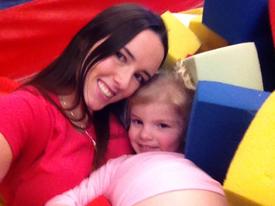Heavy Lifting defined--MUST READ
Replies
-
AMAZING post love the breakdown and very informative! Thank you for taking the time to post this, really helped

question, if I am adding 5lbs every week won't it get too heavy so I won't be able to make 5reps, in other words if I can only do 3 reps with the added weight should I stay at that way until I can complete 5reps then add another five pounds?
Eventually yes. When you reach that point you then progress onto more advanced programs which is where you will see a LOT of exceptions to the guidelines I've posted regarding splits vs. full body and rep ranges. The people who are mainly arguing against the points I've made are coming from the perspective of people who have moved onto these advanced programs, which is why they see things the way they do. This post mainly (and I should have been more clear about this) applies to entry-level heavy lifting programs.
Also, "failure" is open to interpretation. Many people interpret failure as meaning the point where your muscles give out completely. For safety's sake (and because I personally have seen better results this way) I see failure as the point at which you begin to find yourself having to cheat on your form to continue beyond that point.0 -
I am sorry OP but have you ever looked at a Cathe workout program you will find that her STS program is pretty intense and based on heavy lifting, I do agree that 30D Shred is not a heavy lifting program but you shouldn't knock all of them.0
-
AMAZING post love the breakdown and very informative! Thank you for taking the time to post this, really helped

question, if I am adding 5lbs every week won't it get too heavy so I won't be able to make 5reps, in other words if I can only do 3 reps with the added weight should I stay at that way until I can complete 5reps then add another five pounds?
Yes. In stronglifts, you add weight until you "fail" and can't complete all reps. If you fail on three separate occasions, you reduce your weight by 10% and work your way back up.
Also, you might find that going up 5 pounds at a time is too much, especially on upper body lifts. Some folks use fractional plates that weigh 1.25 pounds to go up 2.5 pounds at a time instead. I couldn't find 1.25 pound plates for a price I was willing to pay (I'm ridiculously cheap), so I use one pound D-shaped hand weights to increase by 2 pounds, then the next time I increase, I'd go up 3 pounds.0 -
CP, I know you meant well with this post but it's so off base that it's almost unusable. Essentially, only a basic powerlifting program is defined as lifting heavy. Bodypart splits and 8 rep sets aren't heavy? Come on man. I won't pick on you too hard because I know the main point of this post is to tell women doing dvds like Chalean or taking Body Pump classes that 10 lb weights for 20 reps isn't heavy lifting and I completely agree. But that definition is so narrow that almost nothing is.
But it's mfp, where you're doing SS/SL 5x5 or YOU'RE GONNA DIE.
100% agree with this.
Just because body parts are split up does not mean that you are not lifting heavy... it's ALL heavy lifting if you are failing on your 5-10th rep and you are sweating.... what is HEAVY for me might be warm up for you but thats NOT the point.....
I agree that you will find a lot of exceptions to the guidelines regarding splits for strength gains as you progress onto more intermediate/advanced level programs. This post (and I should have been more clear about this) mainly discusses the entry level programs. Anyone who has moved onto the more advanced programs clearly doesn't need an explanation.0 -
There is some reasonable info in the OP and I think his intentions were good. Unfortunately he has focused on a particular strategy that falls within his limited understanding of "heavy lifting" and concluded that that strategy is the only way. When he eliminated splits he also eliminated his credibility.
Come on people: Whenever somebody tells you that "their way is the only way" your immediate response should be.... "bu!!s...".0 -
All these different work out programs and techniques and internet info that are named something. Do you think they just got it from someone else and named it after themselves? Hmph, okay I got dibs on benching, I'll call it the Zilla program,lol. Go workout with people that have done it for years or learn what works for you. For now I'll do me and you do you. There was never a name for 5X5, people have been doing that since the 60's. Bottom line find what works for you because what works for one person may not work for others. Same as supplements, everybody is different. jmho0
-
There is some reasonable info in the OP and I think his intentions were good. Unfortunately he has focused on a particular strategy that falls within his limited understanding of "heavy lifting" and concluded that that strategy is the only way. When he eliminated splits he also eliminated his credibility.
Come on people: Whenever somebody tells you that "their way is the only way" your immediate response should be.... "bu!!s...".
Not saying this way is the only way. But in beginner-oriented programs that's generally the way things are. Things start to branch out into splits, different rep ranges, and a higher focus on accessory lifts at more advanced programs.0 -
I agree0
-
I'm still old school. You wanna know what heavy lifting routines work. Go work out with power lifters. Just sayin...
Hole in the wall gym, chalk every where, straps, belts, wraps and of course a lot of bar bending steel and iron.
Giant fan in the wall, brick walls even seemed to sweat, loud music blaring not ipad ear phone crap.
If the bar ain't bending you just pretending, lol. C'mon laugh thats funny.
Insert Tim Allen grunts!!!!0 -
Bump0
-
Bump, awesome thread.0
-
I'm still old school. You wanna know what heavy lifting routines work. Go work out with power lifters. Just sayin...
Hole in the wall gym, chalk every where, straps, belts, wraps and of course a lot of bar bending steel and iron.
Giant fan in the wall, brick walls even seemed to sweat, loud music blaring not ipad ear phone crap.
If the bar ain't bending you just pretending, lol. C'mon laugh thats funny.
Insert Tim Allen grunts!!!!
No, its not like that. Its just everybody is caught up with internet info instead of hitting the gym and find out what works for them.0 -
No, its not like that. Its just everybody is caught up with internet info instead of hitting the gym and find out what works for them.
Precisely. I've heard it called 'paralysis of analysis'. People spend so damned much time talking, planning, and deliberating that they forget to do the actual work and can't seem to just use their brain. It's there for a reason.0 -
Good post. I've noticed a lot of people that use "lifting" and "heavy lifting" interchangeably. Weights are supposed to feel a bit heavy, but that doesn't mean you're heavy lifting! Especially when people start talking about doing 3 sets of 15 reps (which is what I do). Look forward to reading more of the comments later!0
-
No, its not like that. Its just everybody is caught up with internet info instead of hitting the gym and find out what works for them.
Precisely. I've heard it called 'paralysis of analysis'. People spend so damned much time talking, planning, and deliberating that they forget to do the actual work and can't seem to just use their brain. It's there for a reason.
Gallow, do you have a link to something that proves this? This sounds like broscience, yo0 -
Well nobody replied to clarify what it is I'm actually doing so I'm just gonna keep calling it heavy lifting, since i am lifting heavy things, especially on my power days0
-
Well nobody replied to clarify what it is I'm actually doing so I'm just gonna keep calling it heavy lifting, since i am lifting heavy things, especially on my power days
PHAT, while definitely falling under the guidelines that would qualify it as a more advanced level heavy lifting routine, has a sort of different goal in mind. The idea of seeing functional strength gains takes a back seat to training for hypertrophy and adding muscle mass. So really, you can call it what you want. Personally I place hypertrophy training in a different school entirely. But a lot of lines become blurred when you step beyond beginner level programs where opinions can differ.0 -
Gallow, do you have a link to something that proves this? This sounds like broscience, yo
I think I read about the brain in a leangains article one time, but just trust me, it's there.0 -
Interesting, thanks.0
-
There is some reasonable info in the OP and I think his intentions were good. Unfortunately he has focused on a particular strategy that falls within his limited understanding of "heavy lifting" and concluded that that strategy is the only way. When he eliminated splits he also eliminated his credibility.
Come on people: Whenever somebody tells you that "their way is the only way" your immediate response should be.... "bu!!s...".
This.0 -
Since I'm not working it to your standards, I'll just call it heavy lift-en then0
-
The idea of seeing functional strength gains takes a back seat to training for hypertrophy and adding muscle mass.
To even take that a step further, most good strength coaches such as Louis Simmons and Mark Rippletoe have kinda knocked the whole idea of functional strength versus strength. Basically, improving your strength makes you more functional. If you increase your squat strength from 100 for a 1RM to 150 for a 1RM, you're stronger and more capable of handling everyday physical challenges. Let's not let the CrossFit ad's (not that I'm knocking CrossFit by any means) blur the lines of strength and functionality.
There are night and day differences between beginner, even within intermediate programs, and then advanced programs. Although not that a beginner couldn't start something more advanced, it's just that they will learn faster and experience faster games with something for more of a "beginner". Assuming they don't have a strong coach or trainer.0 -
To even take that a step further, most good strength coaches such as Louis Simmons and Mark Rippletoe have kinda knocked the whole idea of functional strength versus strength. Basically, improving your strength makes you more functional. If you increase your squat strength from 100 for a 1RM to 150 for a 1RM, you're stronger and more capable of handling everyday physical challenges. Let's not let the CrossFit ad's (not that I'm knocking CrossFit by any means) blur the lines of strength and functionality.
There are night and day differences between beginner, even within intermediate programs, and then advanced programs. Although not that a beginner couldn't start something more advanced, it's just that they will learn faster and experience faster games with something for more of a "beginner". Assuming they don't have a strong coach or trainer.
That last part is fairly subjective. I am constantly getting comments about how fast my lifts went up, and my 'program' is and always has been nothing short of borderline chaos. I firmly believe that any beginner is going to get back out of the iron whatever effort they put into it, so long as they aren't doing retarded **** like...whatever that Arsenio Hall Whoop Whoop arm motion **** is I see some derps doing with a five lbs. dumbbell in their hand. Will it really matter in a year's time? Probably not. By then, both trainees have blown through their noob gains, and are into the realm of slowed progress.0 -
To even take that a step further, most good strength coaches such as Louis Simmons and Mark Rippletoe have kinda knocked the whole idea of functional strength versus strength. Basically, improving your strength makes you more functional. If you increase your squat strength from 100 for a 1RM to 150 for a 1RM, you're stronger and more capable of handling everyday physical challenges. Let's not let the CrossFit ad's (not that I'm knocking CrossFit by any means) blur the lines of strength and functionality.
There are night and day differences between beginner, even within intermediate programs, and then advanced programs. Although not that a beginner couldn't start something more advanced, it's just that they will learn faster and experience faster games with something for more of a "beginner". Assuming they don't have a strong coach or trainer.
That last part is fairly subjective. I am constantly getting comments about how fast my lifts went up, and my 'program' is and always has been nothing short of borderline chaos. I firmly believe that any beginner is going to get back out of the iron whatever effort they put into it, so long as they aren't doing retarded **** like...whatever that Arsenio Hall Whoop Whoop arm motion **** is I see some derps doing with a five lbs. dumbbell in their hand. Will it really matter in a year's time? Probably not. By then, both trainees have blown through their noob gains, and are into the realm of slowed progress.
Don't disagree by any means. I just know what kind of crap is going to come from StrongLifts and Starting Strength advocates that don't believe there's anything past beginner programs because of what they've READ, what they haven't READ, and what they've never TRIED. LOL. I don't feel like reading a spam-fest of ignorance.0 -
Bump0
This discussion has been closed.
Categories
- All Categories
- 1.4M Health, Wellness and Goals
- 398.1K Introduce Yourself
- 44.7K Getting Started
- 261K Health and Weight Loss
- 176.4K Food and Nutrition
- 47.7K Recipes
- 233K Fitness and Exercise
- 462 Sleep, Mindfulness and Overall Wellness
- 6.5K Goal: Maintaining Weight
- 8.7K Goal: Gaining Weight and Body Building
- 153.5K Motivation and Support
- 8.4K Challenges
- 1.4K Debate Club
- 96.5K Chit-Chat
- 2.6K Fun and Games
- 4.8K MyFitnessPal Information
- 12 News and Announcements
- 21 MyFitnessPal Academy
- 1.5K Feature Suggestions and Ideas
- 3.2K MyFitnessPal Tech Support Questions













